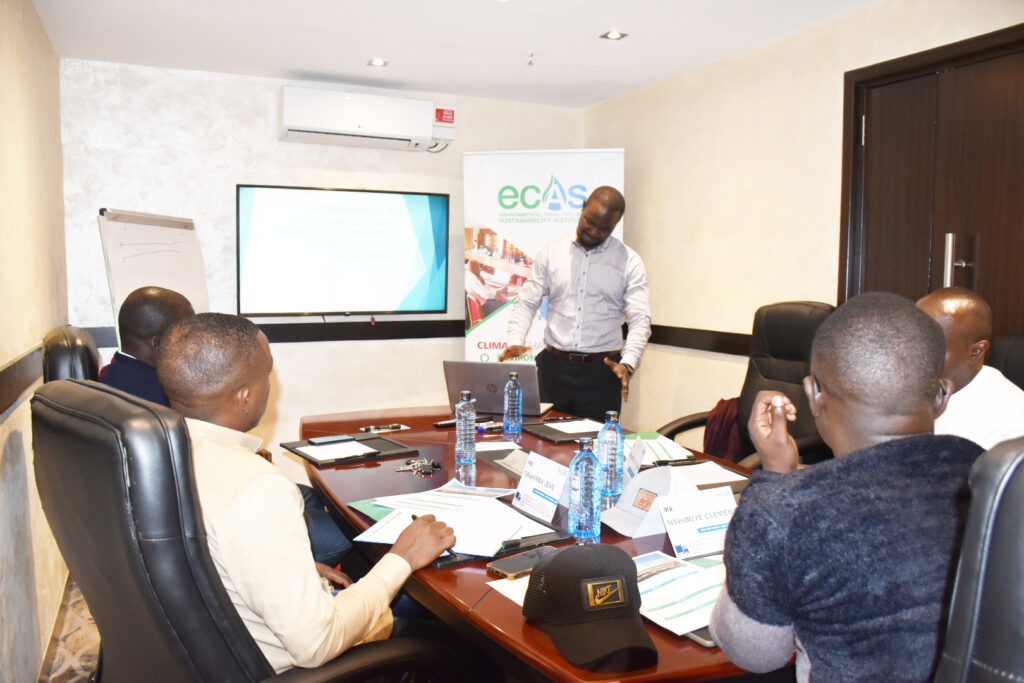
CONCEPT NOTE
INTERNATIONAL TRAINING ON PARTICIPATORY DATA COLLECTION AND INVESTMENT PLANNING IN THE FIELD
COURSE BACKGROUND
Developing sound rural investment proposals starts with quality data and meaningful community engagement. Yet, many investment failures stem from weak field-level planning, poor data collection, and lack of community ownership. Recognizing these challenges, ECAS Institute introduces this practical course to build the foundational skills needed for participatory agri-investment planning.
“Participatory Data Collection and Investment Planning in the Field” is the first in a structured three-part training series aimed at equipping field technicians, extension workers, and rural development professionals with the skills to support agri-entrepreneurs in building investment-ready business proposals.
This course focuses on helping participants engage with communities to identify investment ideas, gather both qualitative and quantitative field data, and develop a simple cost-benefit structure in collaboration with local entrepreneurs. Grounded in ECAS’s commitment to practical, inclusive, and scalable solutions, the course is aligned with the RuralInvest methodology and the broader goals of sustainable rural transformation.
COURSE OBJECTIVES OF THE TRAINING
This course is designed to:
- Equip field professionals with participatory tools to identify and define rural investment ideas.
- Strengthen the capacity to gather relevant data for investment planning through direct field engagement.
- Teach accurate estimation of capital, operational, and general costs in rural enterprises.
- Lay the groundwork for building basic business concepts that can evolve into full business plans.
WHAT YOU WILL LEARN
After completing this course, participants will be able to:
- Facilitate community sessions to develop investment concepts using participatory techniques.
- Collect qualitative and quantitative data required for business proposal development.
- Classify and estimate investment, fixed, operating, and general costs.
- Calculate expected revenues using realistic field-based assumptions.
- Build a simplified cost-benefit overview to guide further planning and software-based modeling.
DURATION AND PROGRAM
TARGET PARTICIPANTS
This course is tailored for professionals engaged in the early stages of rural project development and investment planning. Ideal participants include:
- Field technicians and agricultural extension agents
- Staff of microfinance and rural credit institutions
- NGO and international development program field officers
- Trainers and lecturers in agricultural education institutions
- Business development consultants and advisors supporting rural entrepreneurs
TRAINING MODULES
| No | Module | Details | |
| 1. | Qualitative Description of the Investment Idea |
This module introduces the concept of a participatory investment idea. Participants will learn to work with communities to identify viable business concepts based on local needs and capacities.
Topics:
|
|
| 2. | Investment, General, and Fixed Costs |
Participants will learn to support communities in estimating and organizing the major cost components of an investment project.
Topics:
|
|
| 3. | Operating Costs and Revenue |
This module covers how to calculate the operational expenses and expected revenue of an investment, forming the basis for further economic analysis.
Topics:
|
|
TRAINING STYLE
The modules will be taught through PowerPoint presentations, and lectures and will include a case study/field visit, breakout sessions, case studies and other interactive discussion components.
The course will also include a few guest speakers, both in person and via Zoom and other online learning platforms for overseas speakers. This provides useful real-world insights alongside the more theoretical aspects of the course.
The conference faculty shall consist of experienced decision makers, as well as practitioners and representatives from established educational and research institutions active around climate change, engineering and international development. Throughout the course, theoretical presentation of concepts will be moderated and more group discussions and plenary engagements will be optimized. PowerPoint presentations will be made by facilitators and resource persons, to highlight key concepts before embarking on group work.
GENERAL NOTES
- Training manuals and additional reference materials are provided to the participants.
- Upon successful completion of this course, participants will be issued with a certificate.
- We can also do this as a tailor-made course to meet organization-wide needs. Contact us to find out more: info@ecasiafrica.org.
- Payment should be sent to our bank account before the start of training and proof of payment sent to: info@ecasiafrica.org.
ABOUT ECAS INSTITUTE
The ECAS Institute designs and delivers independent and targeted training, research, and consulting services. Our work focusses on climate change and resilience building, carbon markets, renewable energy, nature-based solution, biodiversity conservation, agriculture and food systems, We are located in Nairobi Kenya and work across the African region. We have implemented training and research assignments in Kenya, Tanzania, Uganda, South Sudan, Somalia, Malawi, Rwanda, Congo, and South Africa. Globally, we have supported our partners from the UK, Denmark, Italy, Sweden, Germany, and USA.

